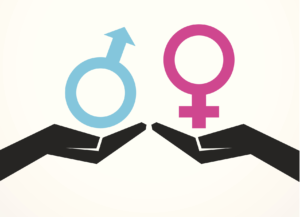
Source: Epic Parenting
Originally published on Mommy Man and cross-posted here with their permission.
When my partner Drew and I decided to have a baby, we had so many reservations about surrogacy, we initially didn’t even consider it.
As we investigated other routes to parenthood for same-sex couples, we learned that every method involves its own pitfalls, heartbreaks and great expense, so there was no easy road to choose.
Most foreign countries with a surplus of adoptable children don’t allow gays to adopt. Domestic adoption is complicated, too. Some birth mothers reconsider their decision to give up their baby, leaving would-be parents crushed. Foster children can be reunited with their own families. Even when you’re raising a kid who’s been with you since birth, legal struggles can tie up your parental rights for years.
We eventually realized that, no matter which path we chose, the road ahead would be bumpy.
That’s when we gave surrogacy a more serious look, and we found that the main fears that scared us away from it were all unfounded.
Here’s what we were afraid of — and what we learned.
1. FEAR: The surrogate will want to keep the baby.
In 1986, there was a very famous court case centered around a child known as “Baby M”.
The details were as follows: a New Jersey couple named William and Elizabeth Stern contracted with a woman named Mary Beth Whitehead to be their surrogate. Whitehead was inseminated with William’s sperm and became pregnant with a fetus conceived from his sperm and her own egg.
After the baby, called Baby M to protect her privacy, was born, Whitehead refused to relinquish her parental rights and insisted on keeping the little girl.
The Sterns took her to court, and after an agonizing legal struggle which was tabloid fodder for years, the surrogacy contract was ruled invalid. Whitehead was recognized as the legal mother, and although the Sterns retained primary custody, Whitehead was permitted visitation rights.
In short, it was a mess, and it scared a generation of people away from the idea of surrogacy.
Here’s the upside of the Baby M hullabaloo: it forced would-be surrogates, intended parents and the legal system to take surrogacy more seriously.
Some states outlawed surrogacy altogether, but others passed laws laying out the terms under which surrogacy contracts would be enforceable. It became far, far less likely that parental rights would remain up in the air after a baby was born.
You could also say that Baby M led indirectly to the rise of gestational surrogacy.
As in vitro technology improved, people increasingly used surrogates who were not expected to provide their own eggs. The thinking went that, if a surrogate wasn’t biologically connected to the child, she wouldn’t consider it her baby. It also made it clearer to the courts that she was not intended to have parental rights.
These days, the ideal candidate for gestational surrogacy has already had children of her own and feels her family is complete. She’s more likely to fear that the intended parents will walk away and leave her with an infant she doesn’t want to keep.
Situations like Baby M’s are pretty much unheard of today, at least in the United States.
If you have a baby with the help of a gestational surrogate, you can rest assured that the infant will go home from the hospital with you, not her.
2. FEAR: Surrogacy exploits women.
I consider myself a feminist, but some feminists want to kick me out of the club for having a child with a surrogate.
Before I truly investigated surrogacy, I worried that they were right. A part of my conscience told me surrogacy was equivalent to renting a womb, that it was a case of a wealthier person buying something from a less-well-off person that they really shouldn’t be selling.
It felt icky.
On the one hand, that’s an incredibly paternalistic argument.
No one’s forced into surrogacy against her will (at least in the U.S. If you’re pursuing surrogacy internationally, you need to be sure to use reputable agencies.)
A surrogacy contract is an agreement between consenting adults, all of sound mind, and most states make it fairly clear whether they will recognize the contract or not.
If I rejected the idea of surrogacy in order to “protect” women, that would be more sexist than respecting the surrogate’s right to make that decision for herself.
Put another way, I believe a surrogate has the right to choose what to do with her own body.
By having a baby with a surrogate, I’m not dictating how women should use their wombs, but laws that tell women they can’t be surrogates are restricting their rights.
As for the money, yes, a surrogate gets paid. Yes, a lot of surrogates use the cash to supplement their income.
But no one’s getting rich as a surrogate.
And the money that these women do make, they earn. The payment can be an incentive for many, but there has to be a deeper reason as well, a desire to help infertile couples.
When we met with our surrogate, we were stunned to see that she drove a nicer car than we did. She had a full-time job and a big heart, and when she told us she was going to say yes to moving forward with us, the tears in her eyes were happy tears.
There are people who will never accept this argument, who will always insist that surrogacy exploits women and shouldn’t be legal. If it nags you that seriously, then surrogacy isn’t right for you.
As for me, I have no regrets, and neither do my partner or our surrogate. We’re all extremely proud of the way we created our kids.
In fact, our surrogate later gave birth for another couple as well.
3. FEAR: Surrogacy reduces the miracle of life to a series of business transactions.
Every kid is eventually going to ask how she or he came into the world.
Most parents can explain it pretty easily: “Well, Mommy and Daddy love each other very much, so we made a baby together. We’ll give you more details in a few years.”
Parents of adopted children also get to say something very sweet. “Well, your birth parent(s) couldn’t take care of you the way they thought you deserved, but they knew that we could, so they chose us to love you and raise you, and that’s how we became a family.”
I feared that, as a dad through gestational surrogacy, I’d have to say something like this to my kids: “Daddy and Daddy found a couple of women who needed some cash, we hired lawyers, signed some paperwork and bam, there you were!”
That was before I actually went through the surrogacy process.
Now, I’d say something like this: “Daddy and I wanted very much to have a baby, but it takes a woman’s help to have one. Your Aunt Susie saw how much love we had to give, and because she loves us so much, she donated her eggs to help create you. Then we met Aunt Tiffany, who saw what good daddies we’d be, and she carried you inside her for nine months so that we could have a family. You were so loved before you were even born that four people came together to help make you.”
That sounds a lot nicer, doesn’t it?
4. FEAR: We can’t afford it.
This probably should be #1.
When we started looking into surrogacy, my partner and I both made decent salaries, but we were hardly wealthy. We didn’t have trust funds or rich parents willing to write us six-figure checks. Whatever money we had in the bank was supposed to help us buy a house and to retire.
Ultimately, we decided that having a family was our top priority. It mattered more to us than owning a big house, taking fancy vacations or being able to live comfortably.
If it meant we could have a baby, we would sacrifice everything else.
Our surrogacy agency required a $7,500 down payment, and told us that we’d be on the waiting list for a surrogate for about a year before we’d have to pay the balance.
I admit that when we gave them the deposit, we weren’t totally sure we’d have enough money when the time came.
But we started saving like mad and searching for funds under every financial couch cushion, and somehow, we made it.
5. FEAR: We could spend a fortune and still end up babyless.
I knew that, despite its high price tag, there were no guarantees to in vitro fertilization. We could make embryo after embryo but never get pregnant.
In fact, just as we were starting our baby journey, the Los Angeles Times ran a series of articles about a gay couple who invested their life savings trying to have a baby through surrogacy. Their tale had a tragic ending, and I feared the same could happen to us.
The surrogacy agency we spoke to was much more confident about our odds.
They said their gay male clients had a success rate, over their first three in vitro cycles, of 98%.
How is that possible?
Well, unlike with infertile straight couples who pursue IVF, no one involved in gay surrogacy has any prior history of infertility. Egg donors and surrogates are tested for their fitness for their respective tasks before they’re approved.
Furthermore, through a process called Intracytoplasmic Sperm Injection (ICSI), even a man with a very low sperm count can create healthy embryos.
Most straight couples want to use a husband’s sperm and wife’s egg, and they’re dealing with low quality on one or both counts.
But for same-sex couples, every participant can be replaced if things aren’t working. If their first IVF cycle is unsuccessful, they can find a new egg donor and/or a new surrogate. They can even switch out which of them is donating sperm.
There are still no guarantees, and as they Los Angeles Times articles show, even a successful IVF can end badly. But in many ways, the odds of having a baby with a surrogate are greater than with the other methods.
[ultimatesocial_facebook custom_class=”fb-btn-us”] [ultimatesocial_twitter custom_class=”tw-btn-us”]
Want to discuss this further? Login to our online forum and start a post! If you’re not already registered as a forum user, please register first here.
Jerry Mahoney lives with his boyfriend, Drew, and their twins Bennett and Sutton, who were born in August 2009. He is currently a stay-home dad raising his kids full-time, but while they’re sleeping, he’s working on a memoir about his family’s whole crazy story, tentatively titled Where Do Gaybies Come From? Follow him on Twitter @WhyJerryWhy.
Search our 3000+ articles!
Read our articles about:
Our online racial justice training
Used by hundreds of universities, non-profits, and businesses.
Click to learn more
Most Read Articles
- « Previous
- 1
- …
- 30
- 31
- 32




















